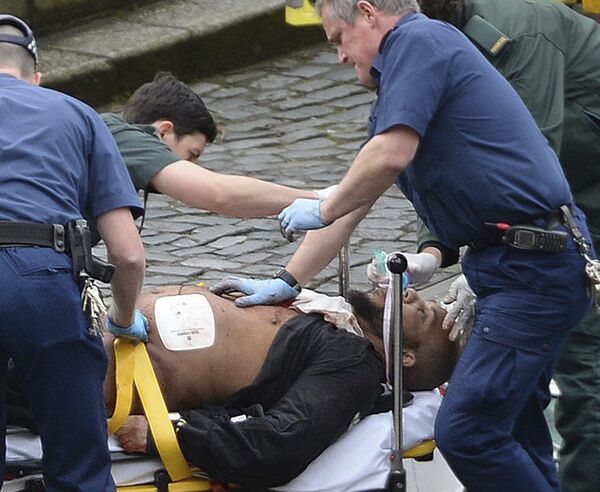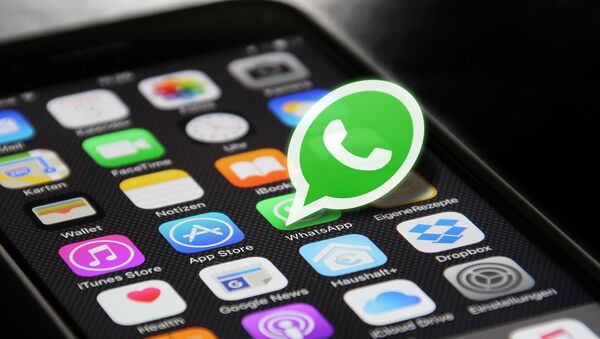Rudd's demands, made in a mainstream television interview, echo the words of then-Prime Minister David Cameron in the wake of the Charlie Hebdo attack in Paris in 2015. Cameron said there should be no means of communication the government cannot read, and attempted unsuccessfully to have an effective ban on full encryption inserted into the controversial Snoopers' Charter.
@stuarthoughton clearly @AmberRudd_MP doesn't have a clue how encryption works. Quite frightening really.
— Gary Williams (@Garyw_) March 26, 2017
While Rudd spoke with specific reference to the March 22 Westminster terrorist attack, her provocative statements are but the latest chapter in an ongoing battle between Western governments and tech firms over encryption and security.
For instance, in a long-running standoff with the FBI, Apple steadfastly refused to accede to demands it disclose the contents of a San Bernardino shooter's iPhone — although, the pair's protracted melee motivated other firms, such as Amazon, to quietly dump the feature from their devices.
Rudd's comments have proven extremely controversial with privacy campaigners and security experts. Alex Walker, chief technology officer at UK cybersecurity firm Hook.ee, believes they betray an ignorance of how encryption works on the Home Secretary's part.
"I question Rudd's credentials on the topic. In fact, I think she has absolutely no idea what she's talking about. Secrecy and privacy is absolutely not the same thing. She accuses WhatsApp and others of enabling terrorist activity — what about the car hire companies? Perhaps we also blame knife manufacturers, who enable stabbings? Someone more cynical than myself may suggest the government's exploiting events like this to further their own interests, and create a Big Brother state," Mr. Walker told Sputnik.
"The best people understand the necessary hashtags to stop this stuff being put up" — Amber Rudd, home secretary on full UK crypto ban pic.twitter.com/vwHraRLPxd
— Jay Rodgers (@headmelted) March 26, 2017
Rudd's apparent lack of technological comprehension was noted by many commentators, with much ridicule focused on her comments about extremist material being circulated online. She said the government needed to find tech experts "who understand the technology, who understand the necessary hashtags" in order to "stop this stuff even being put up." Perhaps Rudd believes "necessary hashtags" can stop the posting of extremist content, and/or indeed allow the government to read terrorists' messages.
@Jack_Blanchard_ what does that even mean?
— koba (@normanpedley) March 26, 2017
Moreover, noting attacker Khalid Masood was known to UK intelligence services, and had been interviewed by MI5 in relation to another terror event, Mr. Walker questions what purpose being able to access the individual's WhatsApp messages would serve.

"If you know who he is and what he's suspected of, you can easily track his phone — you can see his phone was at a car rental outlet, you can see he's headed to London in a rental car. How much more is required for an automated alert to go out?
"Security is a privilege the state offers us, privacy is a human right, and the government is not positioned to trade one for the other," Mr. Walker concluded.
Dennis Wecker, Research Fellow at the International Center for the Study of Violent Extremism, understands the general argument in favor of greater access to private communications channels, however he believes there's a greater responsibility to protect the privacy of citizens.
"A common claim is if individuals have nothing to hide, they have nothing to fear, but that reminds me of George Orwell's 1984. It's not the government's responsibility to be part of our private lives. It's also a mission impossible to oversee every form of private communication — technology will always be one step ahead. Another problem with implementing backdoors into apps and software is they can be exploited by criminals for their own purposes. I don't think anyone wants to see that," Mr. Wecker told Sputnik.


